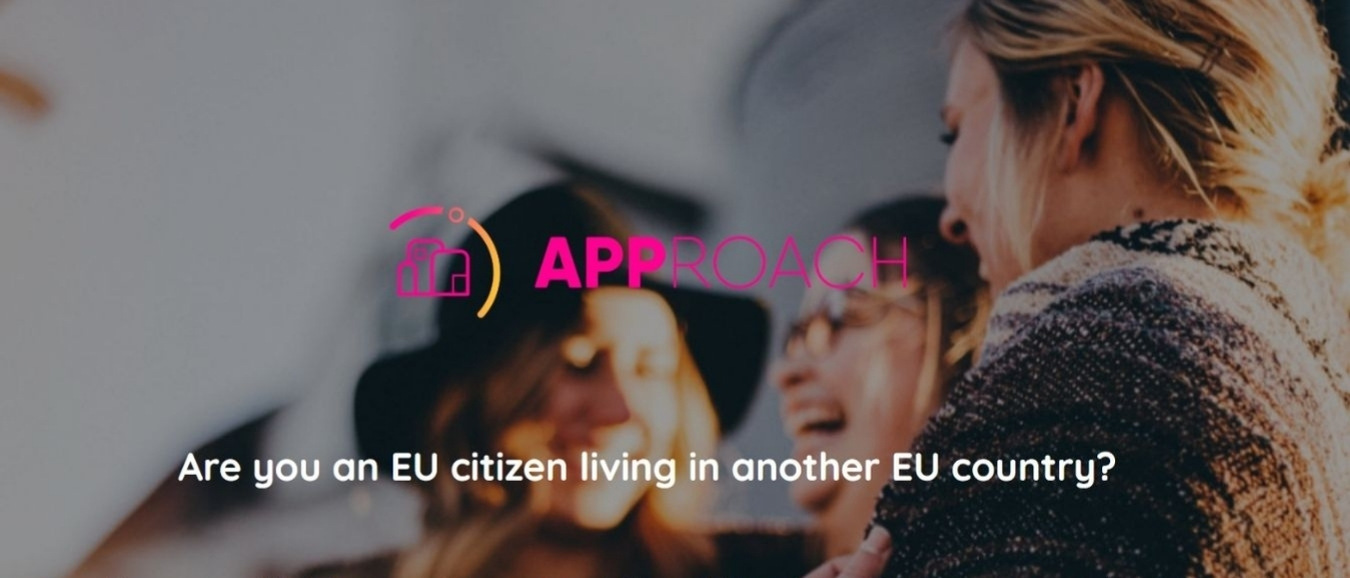How far are communities able to support EU Mobile Citizens (EUMCs), and how do the latter experience the move from a Member State to another, especially in terms of accessibility of services in the digital era?
APProach project has successfully responded to these challenges, thus willing to narrow the gap among citizens, and Local Authorities.
To do so, a dedicated digital ecosystem has been created, to help EU citizens facing obstacles when deciding to move with their families to another EU country: poor administrative services, social inclusion, schooling insertion, additional requirements to register to vote/stand as a candidate in the European Parliament or the municipal elections.
Indeed, the APProach digital ecosystem provides quick access to information concerning voting, education, civic life, social life, as well as how to get started in your host city!
After months of its conclusion, its contribution is still worthwhile and useful for the entire community… but let’s take a closer look.
Starting in 2018, and willing to increase the knowledge on EUMCs rights, as well as sharing information on the bureaucratic steps those citizens will encounter, APProach project saw the commitment of six municipalities gathering together in order to provide support to new European comers.
APProach digital ecosystem: the go-to source to get access to information concerning voting, education, civic and social life
Despite the challenges foreseen and tackled within the project, a greater one affected this initiative as it did with many others: COVID-19. Hence, the entire project was greatly impacted by this tremendous health crisis, yet without dauntening the partners of the project.
Thus, in March 2021 a series of three webinars marked the conclusion of this project, debating not only on the concept of citizenship; but also on the impact of COVID19 on digital tools, and new forms of civic participation such as e-voting.
Hence, from a general perspective, achievements can be summarised into five main pillars:
- Community and network: have an added value per se, especially in reflecting and analysing the the efficiency and challenges of the Local Authorities when welcoming EUMCs;
- The Digital Ecosystem: represents a new communication tool and the ultimate go-to source for EUMCs and municipalities;
- Visibility and communication: several outputs have been implemented, from small videos to reports and news, willing to spread the value and mission of the project;
- Training: to Local Authorities and civil society, contributing to a better understanding and implementation of “European Citizens” definition;
- Concreteness: 60 people within the municipalities’ staff have been engened, thus benefiting, as a spillover effect, 7500 EUMCs (as the indications of the application).
If the above-mentioned pillars were specifically related to the peculiarities of the project itself, it is worth mentioning also some single actions conducted by the partners and related to the overall achievement of the APProach aims.
Related to the fifth pillar, concreteness, in the framework of the EU parliament and administrative elections, for example, APProach provided great support to the EUMCs in the Milano Municipality.
Similarly, Erasmus students in Lisbon do represent a great percentage of Mobile Citizens in the Portuguese capital: therefore, the municipality, considering the positive tool developed by APProach, targeted the latter exactly in support of those new students.
In addition, but more on the CSOs side, in light of the the role of ALDA within the Conference on the Future of Europe, as well as a key stakeholder in democracy promotion and civic engagement, the Association took the positive experience of APProach as a best-practice example when it comes to the relation between democracy and digitalization, especially in terms of citizenship. Thus, in its flagship initiative European Support for Local Democracy, the project represents the perfect in-between of “the need to meet the top-down approach coming from the various institutions and bottom-up approach coming from the citizens, the civil society organisations when digital tools are in question to improve the exercise of the citizens’ rights.”
Overall, despite the incidental crises posed by COVID-19, partners managed not only to achieve the initial goals, but also single partners got inspired by this project, fully implementing it at local level, while empowering EU Mobile Citizens.
***
Useful links:
- Visit the APProach Digital Ecosystem
- Check reports and news of the project
- Take a look at the activities
***
***
